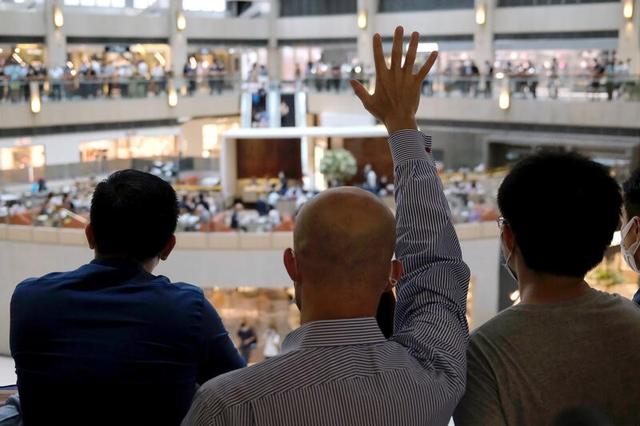China’s state media and the government of Hong Kong lashed out on Sunday at U.S. President Donald Trump’s vow to end Hong Kong’s special status if Beijing imposes new national security laws on the city, which is bracing for fresh protests.

Trump on Friday pledged to “take action to revoke Hong Kong’s preferential treatment as a separate customs and travel territory”, and to impose sanctions on unspecified individuals over Beijing’s new laws on the Asian financial centre.
But China’s state media pushed back, saying this would hurt the United States more than China.
“The baton of sanctions that the United States is brandishing will not scare Hong Kong and will not bring China down,” China’s Communist Party mouthpiece, the People’s Daily, wrote in a commentary. It used the pen name “Zhong Sheng”, meaning “Voice of China”, often used to give the paper’s view on foreign policy issues.
The Global Times wrote, “China has already prepared for the worst. No matter how far the U.S. goes, China will keep its company.”
A Hong Kong government spokesman expressed regret the United States continued to “smear and demonise the legitimate rights and duty of our sovereign” to safeguard national security.
In a sign of diplomatic manoeuvring, the U.S. government said it would put one of its prime Hong Kong properties up for sale – a luxury residential complex worth up to HK$5 billion ($650 million).
A spokesman for the U.S. consulate in Hong Kong said this was part of a global programme that “reinforces the U.S. government’s presence in Hong Kong” through reinvestment in other areas.
China and Hong Kong officials have justified the laws that will be directly imposed by China to restore order to a city that has been wracked by sometimes violent anti-China, anti-government protests over the past year. They said the laws will only apply to a small number of “troublemakers.”
Protesters, however, have said they are railing against China’s deep encroachment on Hong Kong’s autonomy and freedoms despite Beijing’s promise to grant the city a high degree of autonomy under a so-called “one-country, two systems” formula since it reverted from British to Chinese rule in 1997.
More protests are planned in the coming weeks.
Countries including the United States, Canada and Britain have expressed deep concerns about the law, with Britain saying it may grant expanded visa rights to large numbers of Hong Kongers.
Demosisto, an advocacy group led by prominent young Hong Kong democracy activist Joshua Wong, said the security law will be “the death of freedom in Hong Kong”.
A senior Hong Kong official, Erick Tsang, said he couldn’t care less if he were sanctioned by the Washington. “I wouldn’t even go to Canada, just in case they try to catch me” there, Tsang told local radio.
Details of the laws remain unclear, even to Hong Kong officials, but are expected to be enacted by China’s parliament this summer. The laws will outlaw secession, subversion, terrorism and foreign interference in Hong Kong, and will be imposed without any local legislative scrutiny.
Reuters
